Nikolaus Harnoncourt MBTI Personality Type
Personality
What personality type is Nikolaus Harnoncourt? Nikolaus Harnoncourt is an INTJ personality type in MBTI, 6w5 - - in Enneagram, in Big 5, in Socionics.
Who on earth did this atrocity of voting. ESTP, E8??? Please dont tell me uve been voting this because he has bull eyes. Let's break it down. Harnoncourt's MBTI type is inferred as INTJ . Here's the analysis based on his 2002 interview in The New Zurich Paper: 1. Introverted (I) Harnoncourt mentions "extreme stage fright" and dislike for solo careers, showing sensitivity to public performance pressure and a preference for inner thought over external interaction. He stresses the need for "a lot of time" for creation and deep reflection on music's essence (e.g., obsession with Beethoven's dynamic markings), aligning with introverts' preference for deep focus. In his early career, he studied early music with a small circle (wife, Leonhardt) rather than relying on external recognition, showing introverts' independence. 2. Intuition (N) His interpretations go beyond the surface, seeking " undiscovered possibilities." For example, he rejects the idea that Corelli's sonatas are inherently dull, believing the issue lies in performance methods, showing intuition for latent meaning. His exploration of historical performance practices aims to "re-romanticize" music (e.g., Mozart), giving it timeless vitality and reflecting a preference for abstract concepts and innovation. He mentions the importance of a "clear direction" in music and compares Karajan to a "racing driver" sensing dynamic reserves, showing a global intuitive grasp of music's structural logic. 3. Thinking (T) Harnoncourt analyzes music highly rationally. For instance, he criticizes modern instruments' technical compromises (metal strings, plastic mutes) from acoustic and aesthetic angles, not just emotional preference. When discussing Beethoven's Missa solemnis, he focuses on tonal symbolism (e.g., D major for "rulership and God") and compositional logic (chromatic slides deconstructing morality), showing systematic thinking about music language. His pursuit of "correctness" (e.g., "correct" performance of Bartók's fugues) is based on rational restoration of composers' intentions, not subjective emotion. 4. Judging (J) Harnoncourt shows strong planning and principles. For example, he insists on using period instruments, gut strings, and a specific pitch standard (a’=430Hz), with detailed strategies (e.g., distributing wooden mutes to the Vienna Philharmonic), reflecting a need for order and control. His career shift (from cellist to conductor) was a well-considered choice. He gave up playing due to efficiency, highlighting a goal-oriented decision style. In his artistic philosophy, he rejects "objectivist" performances (e.g., mechanical handling of Haydn symphonies), based on systematic research into historical context and musical rhetoric, showing dependence on structured methods. Key Rebuttal Points and Alignment with INTJ Traits Future-Oriented Mission: His wish to "find the golden key to unlock Schubert's operas" aims to correct systematic cognitive biases, showing INTJ determination to realize possibilities. Dialectical Attitude towards "Failure": He accepts Beethoven's "built-in failures" (unplayable notes in Missa solemnis) as artistic strategy, not technical flaws, showing INTJ desire to master complex systems and abstract thinking. In conclusion, Harnoncourt's thinking and behavior align with the INTJ type. He uses introverted deep reflection, intuitive grasp of artistic essence, rational analysis to build systematic interpretations, and judgment-driven goal orientation. His restoration of musical context, strict technical control, and quest for "unheard possibilities" show typical INTJ "Architect" traits—reconstructing the world's inner order through strategic innovation.
Biography
Johann Nikolaus Harnoncourt or historically Johann Nikolaus Graf de la Fontaine und d'Harnoncourt-Unverzagt; (December 6th, 1929 – March 5th, 2016) was an Austrian conductor, particularly known for his historically informed performances of music from the Classical era and earlier.
Related Personalities
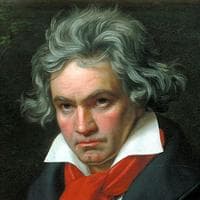
Ludwig van Beethoven

Fryderyk Chopin
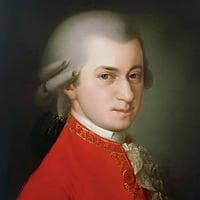
Wolfgang Amadeus Mozart
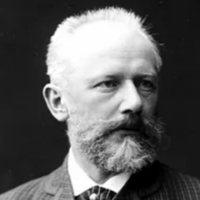
Pyotr Ilyich Tchaikovsky
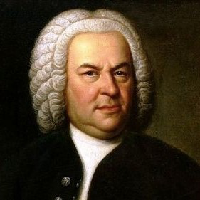
Johann Sebastian Bach
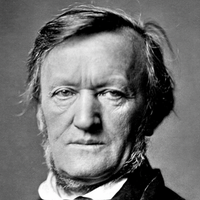
Richard Wagner
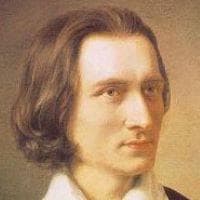
Franz Liszt
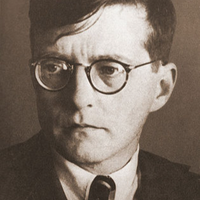
Dmitri Shostakovich








